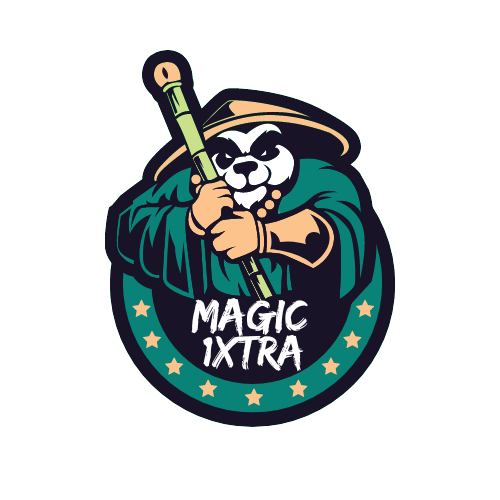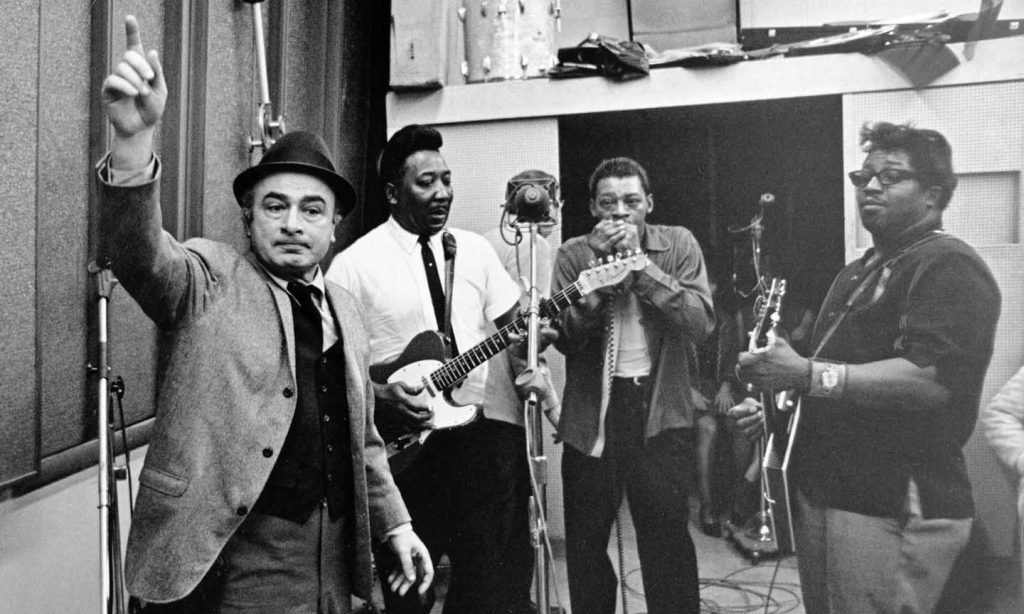Chess Records, founded in Chicago in 1950, is one of the most significant record labels of all time. The company was started by Leonard Chess and his brother, Phil, who were both Jewish immigrants from Poland (their original surname was Czyż), and the “race music” they recorded still sounds as fresh as when it was cut in that booming post-war city. The best Chess blues records laid the foundation for rock’n’roll as we know it – and their influence continues to be felt today.
When people talk about the “Chess sound” they are not usually referring to some of the brilliant early rock’n’roll music made in Chicago – by pioneers such as Chuck Berry and Etta James – but to the blues records of such greats as Muddy Waters, Howlin’ Wolf, Buddy Guy, and John Lee Hooker, cut as singles and albums either through Chess or its Checker subsidiary.
The Motown of their day, Chess Records was the soundtrack to much of black America of the 50s. Here we pick 10 of the best Chess blues singles of all time.
Chess Records – A Brief History
Click to load video
Muddy Waters: I Can’t Be Satisfied
Muddy Waters gave the Chess label its first money-spinning hit with “I Can’t Be Satisfied,” an electrified version of a song he had originally played for musicologist Alan Lomax as an acoustic blues.
In 1948, Waters made a crucial musical breakthrough with this new brand of high-voltage country-blues. The song was released as part of Aristocrat Records, the original name of Chess. When Leonard Chess first heard Waters singing the lyrics to the song, with slide guitar powering behind it, he said, “What’s he saying? Who’s going to buy that?” Persuaded by producer Evelyn Arons, Leonard took a gamble anyway, and the first 3,000 copies sold out in a day. The single is now hailed as an early masterpiece of Chicago blues.
Muddy Waters: Hoochie Coochie Man
The Chess brothers realized that the thousands of black southerners who had moved to Chicago to get work would pay for records – especially for the music of Muddy Waters. So it’s no surprise that the pioneering artist lays claim to two of the best Chess blues records in this list.
By the early 50s, Waters wanted to record with a band and he cut a series of superb singles for Chess, backed by musicians of the caliber of Little Walter (harmonica), Otis Spann (piano), and the great blues songwriter and producer Willie Dixon (bass).
This most brilliant of blues bands was absolutely peerless on ‘Hoochie Coochie Man’, a Dixon composition. Among the other Waters classics for Chess from the period are “Mannish Boy” and “Rollin’ Stone,” the song that inspired the name of one of the most famous rock bands of all time. When Mick Jagger and co made a pilgrimage to Chess’ studio in the 60s, they recorded an instrumental track called “2120 South Michigan Avenue,” the address of the company.
[I’m Your] Hoochie Coochie Man (Alternate Take)
Click to load video
Little Walter: Juke
The power of Little Walter’s harmonica added intensity to many blues records of the time, and in 1952 he was offered the chance to record solo. He recorded “Juke,” as Little Walter & His Night Cats, for the Checker division of Chess, and it reached No.1 on the R&B charts in September that year, becoming the first of 15 of Walter’s records to chart. The pulsating instrumental featured Waters and Jimmy Rogers on guitar.
Instrumentals were a key part of the early Chess success. The brothers launched the label in June 1950 with an instrumental ballad by jazz saxophonist Gene Ammons, “My Foolish Heart,” which was a hit on the R&B charts.
Lowell Fulson: Reconsider Baby
Lowell Fulson’s 1954 hit, a 12-bar blues with simple yet memorable lyrics and a driving rhythm, has become a blues standard, recorded by artists as diverse as Elvis Presley, T-Bone Walker, and Eric Clapton. Fulson’s song spent 15 weeks on the chart and was included in the Rock And Roll Hall Of Fame’s list of 500 songs that shaped rock, forever cementing its status as one of the best Chess records.
Bo Diddley: Bo Diddley
The Chess brothers knew they were on to a winner with Mississippi-born Bo Diddley and signed him to a long-term contract when he was still in his 20s. His self-titled single, also released on subsidiary Checker, established what was called the “Bo Diddley Beat,” a thundering African-derived groove. This 1955 record became his top-selling single and featured the excellent B-side “I’m A Man.”
As Buddy Guy said: “Phil and Leonard Chess were cutting the type of music nobody else was paying attention to.”
Sonny Boy Williamson II: Don’t Start Me To Talkin’
The second Sonny Boy Williamson, the man who stole his namesake’s moniker, was among the Chess artists who recorded singles that also had strong B-sides. His 1955 song “Don’t Start Me To Talkin’,” for example, was accompanied by the excellent “All My Love In Vain.” “Don’t Start Me To Talkin’,” meanwhile, is considered by Bob Dylan to be one of the best Chess blues records on offer.
Once again, Chess called on their roster of fantastic musicians – Otis Spann (piano), Muddy Waters, Jimmy Rogers (guitar), Willie Dixon (bass), and Fred Below (drums) – to give the perfect musical backing to Williamson’s imaginative lyrics and sweet harmonica playing.
Don’t Start Me To Talkin’
Click to load video
Howlin’ Wolf: Smokestack Lightnin’
Sun Records founder Sam Phillips said that losing Howlin’ Wolf to Chess was the greatest disappointment he would ever experience in the record business. The singer, born in 1910 as Chester Arthur Burnett, created his masterpiece, his own song “Smokestack Lightnin’,” in 1956, with a band that included Willie Dixon on bass and Otis “Smokey” Smothers on guitar. The frequently covered song was an instant hit (and charted again in the UK almost a decade later), and captures why Phillips said Wolf’s voice “is where the soul of man never dies.” Wolf recorded many classics that could vie for a place among the best Chess blues records, including the sensational “Moanin’ At Midnight” and “Sitting On Top of the World.”
Willie Dixon: 29 Ways
Some of Chess’ success was down to the excellent work of A&R man, composer, and general fixer Willie Dixon. His bass playing, often in tandem with Fred Below’s powerful drumming, was essential to the Chess sound. Dixon broke out on his own in 1956 with “29 Ways,” a gently swinging blues gem featuring an impressive tenor saxophone solo (uncredited, but believed to be by Harold Ashby). Among Dixon’s other solo classics for Chess are “Crazy For My Baby” and “Walkin’ The Blues.”
John Lee Hooker: One Bourbon, One Scotch, One Beer
John Lee Hooker bounced around record labels in the 50s, but some of his singles for Chess Records represent his inimitable solo acoustic style: striking guitar work combined with foot-stomping and potent, introspective vocals. The blues maestro recorded for Chess in Chicago and Detroit in the 50s and 60s. His 1959 album for Chess, House Of Blues, as well as being a quintessential record, inspired the name of the chain of blues clubs that sprung up in North America in the 90s.
One Bourbon, One Scotch, One Beer
Click to load video
Elmore James: Talk To Me Baby
As well as superstars such as Muddy Waters, the Chess brothers also had on their books talented blues musicians the likes of JB Lenoir, Willie Mabon, Floyd Dixon, and Billy Boy Arnold. Sometimes stars from other labels would record for them, such as Elmore James, who did several sessions in the 50s and 60s.
He recorded a Chess version of “Dust My Broom” and, in 1960, a stirring version of his own composition “Talk To Me Baby” (also known as “I Can’t Hold Out”), which was later recorded by Canned Heat. As Leonard Chess said in a speech at the Rock And Roll Hall Of Fame in 1987: “Chess not only became the true repository of American blues music, but it also presented black music for the edification of white audiences throughout the world.”
Follow the Chess Records Essential playlist on Spotify.



